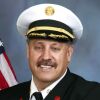If you were to die tomorrow, what kind of leader will you be known for while you were serving in the fire service?
If you retired tomorrow, will your firefighters be happy to see you go or miss your leadership?
And if you were retired and died years later, would the fire department you served even send representatives to your funeral?
The true judges of you
Taking assessment centers and interviewing for a fire leadership position is just the first step. The real assessment center on how well you performed and, ultimately, how you will be judged, takes place the rest of your career.
You will not get to write or determine your final chapter of how you did when you served as a company or chief fire officer – the firefighters who served with you get that right, and they will stand in judgment. They will have the final say and will write the final chapter of your career with their own words when they speak of you after you have left.
A positive or negative impact?
I’ve been in fire departments where some company and chief officers have made such a positive or negative impact that 15, 20, 30 years or more after they retire, they are still remembered and talked about by those who served with them. Even newer members of the department who never worked with the person hear stories of them and the actions they took while on the job. I’ve seen those firefighters carry on the stories.
Some are remembered in a good way, and others are deemed “the worst” firefighter, company officer or chief in the history of the fire department. Some are admired, and some are despised.
I have witnessed firefighters come to an officer’s funeral and salute the casket one last time, even when no order to salute was given at that moment because they admired and respected the person so much. On the other hand, I have known fire officers who were so loathed that when they held their retirement party on a day where people on their shift could come because they were off duty, no one came. I have even seen chief officers sneak out the backdoor on their last day to avoid anyone knowing they left because they know anyone saying goodbye to them would be joyous. That is how little they were respected as a fire officer.
Be remembered for the right reasons
What was the difference between those who were revered and those who were vilified?
Those whose legacy will live on positively were change-agents. They chose to lead firefighters, not manage them. They promoted a culture of diversity and inclusiveness so that even when a firefighter who was not carrying their own weight, they weren’t disciplined, but they were lifted-up, mentored, coached and encouraged to be better than they were. These change-agents did not believe in a rule-driven fire department; they believed in a value-driven fire department where firefighters did the right things for the right reasons, treated everyone fairly, and gave their all on every call, regardless of the nature of the call. They knew if you operated with values, all the rules would be followed.
These fire leaders who have been remembered long after their retirement or death did not allow bullying of other firefighters. They did not insist that you were either a part of the “Good Ole Boys Club” or you weren’t. Everyone was a part of one team.
These fire service leaders mentored and coached their subordinates so that the next generation of firefighters was prepared to step into leadership roles and serve. They lead by example.
Another method for being remembered well beyond your days as a fire service leader is to respect others and be honorable. Do the right things for the right reasons, and don’t try to screw over your fellow firefighters. Don’t abuse your position and use it to harm others like I have seen so many do, as they are remembered for just that – being a bully.
Chances are you will not be remembered for curing cancer, wiping out some horrible disease, revolutionizing the world financial system or anything else that will rise to the level that your birth or death date will be announced by some radio announcer 50 years later because of how important you were. Instead, you will be remembered for how you treated others, how well you performed your job, and how much you prepared those coming up behind you to carry on the tradition and service found in your department.
This quote sums it up: “They may forget what you said, but they will never forget how you made them feel.”
All of us should leave it better than we found it. Your mission as a company or chief fire officer should also be to leave your fire department better than you found it the day you walked in the door for your first shift.













